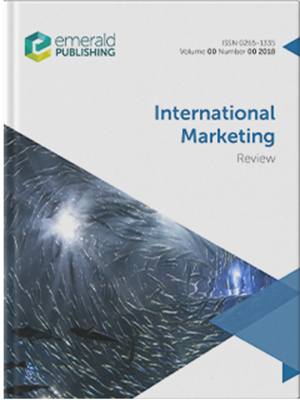对2019冠状病毒病危机期间酒店行业实施的收入管理策略和措施的纵向分析
IF 4.6
3区 管理学
Q1 BUSINESS
引用次数: 0
摘要
本研究旨在从纵向角度回答与COVID-19危机相关的两个主要研究问题:在分析的不同时期,收益管理(RM)的作用是什么?与非危机背景相比,危机期间实施的风险管理战略和措施是什么?它还旨在提出一个RM实施模型,提供一个应对未来危机的应急计划。本定性研究采用纵向方法,分析了与11位国际知名专家在COVID-19危机的三个关键情景下进行的三次圆桌讨论:封城期(2020年3月至6月)和接下来的两个夏季(封城后):封城后I期(2020年夏季)和封城后II期(2021年夏季)。基于演绎法,使用NVivo进行主题分析。收入管理人员的进一步专业化,使得策略和措施的正确应用,强调不降低价格的重要性,预订条件的灵活性,其他收入来源的发展和服务价值的增加,等等,是管理这场危机的关键因素。在这次危机的三个不同时期进行的纵向分析显示了这些措施是如何演变的,以及与非危机背景下RM应用的对比。收入经理的领导力和主动性,RM营销、商业和销售部门的整体组织,以及通过修改算法快速调整RM系统(RMSs),对于减少COVID-19对酒店业的影响至关重要。这场危机促使该行业重新思考流程和战略,并加强数字化。该模型将COVID-19期间实施的各种风险管理战略和措施与非危机情况进行了对比,是制定分级应急计划以应对未来危机的基础。这项研究揭示了RM在这场危机中广泛讨论的作用。研究局限性/启示本研究有诸多局限性。首先,由于卫生危机,三次圆桌讨论是在网上举行的,所选择的网络研讨会形式可能因其公开性质而使与会者的回答产生偏差。其次,调查是用西班牙语进行的。尽管参与者具有很强的国际背景,但可能会出现文化扭曲,这表明未来可能需要将研究扩展到其他文化背景。第三,由于一些参与者的专业职责,他们无法参加所有的圆桌讨论,所以有类似情况的人被邀请参加其余的会议。实际意义收益经理的领导力和主动性,RM营销、商业和销售部门的整体组织,以及通过修改其算法来快速适应RM,对于减少COVID-19对酒店业的影响至关重要。这场危机促使该行业重新思考流程和战略,并加强数字化。该模型将COVID-19期间实施的各种风险管理战略和措施与非危机情况进行了对比,是制定分级应急计划以应对未来危机的基础。这项研究揭示了RM在这场危机中广泛讨论的作用。独创性/价值本工作提供了一个模型,将COVID-19期间实施的各种风险管理策略和措施与非危机背景进行对比,从而为文献做出了贡献。本研究的新颖性主要在于,考虑到之前关于COVID-19危机期间应用的RM策略的研究,并通过应用定性技术补充了新的措施,进行了演绎法和纵向研究。本文章由计算机程序翻译,如有差异,请以英文原文为准。
A longitudinal analysis of revenue management strategies and measures implemented in the hospitality industry during the COVID-19 crisis
PurposeThis research aims to answer two major research questions related to the COVID-19 crisis from a longitudinal approach: What is the revenue management (RM) role during the different periods subject to analysis? What are the RM strategies and measures implemented during this crisis in contrast with a non-crisis context? It also aims to propose an RM implementation model that provides a contingency plan to face future crises.Design/methodology/approachThis qualitative study, following a longitudinal approach, analyses three round-table discussions with 11 internationally renowned experts during three key scenarios of the COVID-19 crisis: the lockdown period (from March to June 2020) and the following two summer seasons (the post-lockdown period): Post-lockdown I (the summer campaign, 2020) and Post-lockdown II (the summer campaign, 2021). Based on a deductive approach, thematic analysis is conducted using NVivo.FindingsFurther professionalisation of revenue managers, which has enabled the correct application of strategies and measures, highlighting the importance of not lowering prices, the flexibility of booking conditions, the development of other sources of income and the increase in the value of services, amongst others, are key factors in managing this crisis. The longitudinal analysis carried out in three different periods of this crisis shows how these measures have evolved and the contrast with RM application in a non-crisis context. The revenue manager's leadership and proactivity, the holistic organisation of RM marketing, commercial and sales departments and the quick adaptation of RM systems (RMSs) by modifying their algorithms are essential to reducing the impact of COVID-19 on the hospitality industry. This crisis has led the industry to rethink processes and strategies and to increase digitalisation. The proposed model, which considers the various RM strategies and measures implemented during COVID-19 in contrast to a non-crisis context, is the cornerstone for developing a graded contingency plan to face future crises. This research sheds light on the widely discussed role of RM during this crisis.Research limitations/implicationsThis study has various limitations. First, the three round-table discussions were held online due to the health crisis, and the chosen webinar format may have biased the participants' answers due to its public nature. Second, the survey was carried out in Spanish. Despite the strong international profiles of the participants, cultural distortion may appear, suggesting that the research should possibly be extended to other cultural contexts in the future. Third, some of the participants were unable to attend all the round-table discussions due to their professional duties, so people with similar profiles were invited to the rest of the sessions.Practical implicationsThe revenue manager's leadership and proactivity, the holistic organisation of RM marketing, commercial and sales departments and the quick adaptation of RMSs by modifying their algorithms are essential to reducing the impact of COVID-19 on the hospitality industry. This crisis has led the industry to rethink processes and strategies and to increase digitalisation. The proposed model, which considers the various RM strategies and measures implemented during COVID-19 in contrast to a non-crisis context, is the cornerstone for developing a graded contingency plan to face future crises. This research sheds light on the widely discussed role of RM during this crisis.Originality/valueThis work contributes to the literature by providing a model that considers the various RM strategies and measures implemented during COVID-19 in contrast to a non-crisis context. The novelty of this research is mainly found in the conducting of a deductive and longitudinal study considering previous research focussed on RM strategies applied during the COVID-19 crisis and supplementing it with new measures by applying qualitative techniques.
求助全文
通过发布文献求助,成功后即可免费获取论文全文。
去求助
来源期刊

International Marketing Review
BUSINESS-
CiteScore
8.70
自引率
12.00%
发文量
55
期刊介绍:
International Marketing Review (IMR) is a journal that has, as its core remit, the goal of publishing research that pushes back the boundaries of international marketing knowledge. IMR does this by publishing novel research ideas, and by publishing papers that add substance to, question the basic assumptions of, reframe, or otherwise shape what we think we know within in the international marketing field. IMR is pluralistic, publishing papers that are conceptual, quantitative-empirical, or qualitative-empirical. At IMR, we aim to be a journal that recognizes great papers and great research ideas, and works hard with authors to nurture those ideas through to publication. We aim to be a journal that is proactive in developing the research agenda in international marketing, by identifying critical research issues, and promoting research within those areas. Finally, IMR is a journal that is comfortable exploring, and that fosters the exploration of, the interfaces and overlaps between international marketing and other business disciplines. Where no interfaces or overlaps exist, IMR will be a journal that is ready to create them. IMR’s definition of international marketing is purposefully broad and includes, although is not restricted to: -International market entry decisions and relationships; -Export marketing and supply chain issues; -International retailing; -International channel management; -Consumer ethnocentrism, country and product image and origin effects; -Cultural considerations in international marketing; -International marketing strategy; -Aspects of international marketing management such as international branding, advertising and new product development.
 求助内容:
求助内容: 应助结果提醒方式:
应助结果提醒方式:


